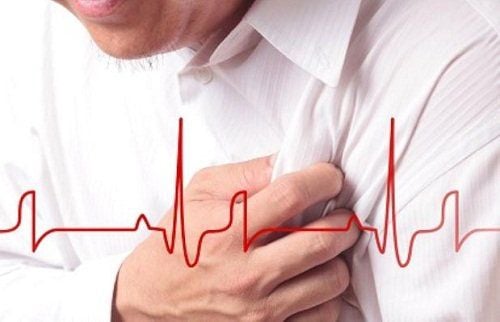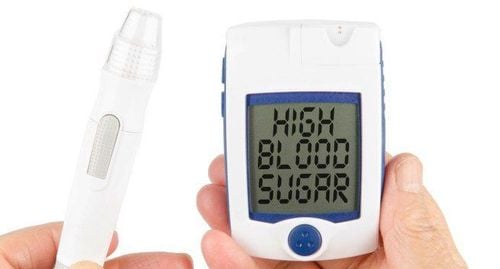This is an automatically translated article.
Cycling a lot can make you feel tired, reducing cycling performance. In addition, it can cause insomnia, changes in heart rate, weakening of the immune system, loss of appetite, increasing the risk of injury. So, a lot of opinions are given as to whether cycling a lot is good? In fact, if you want to cycle a lot, you need to have a plan to adjust your schedule to maintain stable health.
1. Is cycling a lot good?
Is cycling a lot good? In fact, cycling a lot can be harmful to health. Many athletes who regularly cycle 30km a day or cycle 40km a day may have trouble adjusting their exercise level to a moderate level, thereby causing overtraining syndrome (OTS). This is a phenomenon where the body suffers more damage during exercise than it can repair, and is common in people with high training goals. In fact, most athletes at their peak are also on the verge of overtraining. However, if you slip and fall into overtraining syndrome, it can take a long time to get back in shape.
Cycling with desire will push yourself to develop better. On the contrary, cycling with a heavy mentality and a lot of pressure always causes fatigue, then this is the time when you need to really rest.
If you detect early signs of OTS, you can recover and return to serious training sooner. Therefore, you need to identify yourself as tired due to your sleep schedule, diet or overtraining.
MORE: How many calories does cycling take?
2. Excessive cycling harms health?
2.1. Insomnia If you're starting to have trouble falling asleep, tossing and turning at night, or waking up feeling more tired than when you slept, it could be a sign you're cycling too much. Although there are mixed results from studies on whether excessive cycling affects sleep, it is true that it does.
2.2. Changes in Heart Rate According to studies on OTS overtraining and heart rate variability, an elevated or low heart rate during rest is a sign that the body needs rest after strenuous exercise. long.

Đạp xe 40km một ngày có thể làm thay đổi nhịp tim
To do this, many runners do a schedule that combines 3 hard weeks, 1 easy week, and easy weeks between race seasons. Each athlete's level of rest is different. But the more intense you ride, the more rest you need.
2.3. Immunodeficiency One of the biological markers for excessive cycling is a suppressed immune system. Short-term exercise causes short-term suppression of the immune system, but then the immune system is strengthened again. However, when you are overtrained, your immune system will begin to weaken. Anything from a lingering cold to a rash and slow-healing wounds indicates that the body is overworked and struggling to repair itself.
MORE: Does cycling lose weight?
2.4. Loss of appetite During cycling, a lot of calories will be burned. Usually, it stimulates feelings of hunger. If you don't feel hungry, it's a sign that you're cycling too hard.
2.5. Injuries Professional sports teams often rest players at appropriate times and pull players off the roster if they are not getting enough rest. This is not because the player is actually injured, but rather that there is a high risk of injury. If you have frequent sports injuries over the course of a few months, stop cycling for at least a few days.

Đạp xe 40km một ngày có thể gây chấn thương
3. How do I know if I ride my bike too much?
You need to take a blood test to determine if cycling is excessive, as it often causes a decrease in the amount of testosterone and hemoglobin in the body.
Most people will rely on health changes to detect themselves cycling excessively such as disrupted sleep, changes in appetite.
It can be really hard to finish your workout if you cycle less than 15 hours a week. However, it can still happen, especially if you go out and exercise every day.
You need to avoid the trap of “I only have 90 minutes to ride, so I better do my best”. Repeated practice will only leave you mentally exhausted and depressed. To make things interesting, add intervals of different lengths and intensities.
If you really get to the point of OTS, it can take a surprisingly long time to resolve the issue. Two or three weeks of complete rest is usually the minimum amount of time you'll need to recover. If you've been over-trained for a long time, it can take up to a year to really get your sanity back.
Please dial HOTLINE for more information or register for an appointment HERE. Download MyVinmec app to make appointments faster and to manage your bookings easily.
Reference source: bicycling.com












